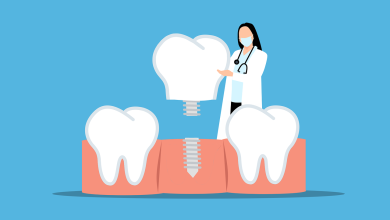How Often are Dental Cleanings Necessary? Unveiling the Top Secrets to Optimal Dental Health!

Dental cleanings are necessary every six months for maintaining oral health and preventing dental issues. Regular dental cleanings at least twice a year are essential to keep teeth and gums healthy.
Neglecting dental cleanings can lead to the buildup of plaque and tartar, which can cause cavities, gum disease, and other oral health problems. By staying on top of regular dental cleanings, individuals can ensure their teeth and gums remain healthy, reduce the risk of oral health issues, and maintain a bright and confident smile.
Taking preventative measures like regular dental cleanings can save individuals from more extensive dental treatments and expenses in the long run.

Credit: clearchoicedental.com.au
Importance Of Regular Dental Cleanings
Regular dental cleanings are an essential aspect of maintaining optimal oral health. Research has shown a strong link between dental cleanings and overall oral health, highlighting the importance of these routine appointments. These cleanings prevent common dental issues such as cavities, gum disease, and oral infections. By removing plaque and tartar buildup, dental cleanings help to prevent the onset of these problems and ensure the longevity of your teeth and gums.
In addition to preventing dental issues, regular cleanings also play a vital role in maintaining oral hygiene. Despite closely following an oral care routine at home, there may still be areas in the mouth that are difficult to reach and clean thoroughly. Professional dental cleanings help to address these areas and remove any buildup that may have accumulated, leaving your teeth and gums feeling refreshed and healthy.
Factors Influencing The Frequency Of Dental Cleanings
Regular dental cleanings are essential for maintaining optimal oral health. The frequency at which cleanings are necessary can vary depending on individual dental health and oral hygiene practices. It is important to understand the relationship between oral health and general health, as poor oral health can have far-reaching implications. Assessing risk factors such as tobacco use, age, medication use, and medical conditions is crucial in determining the appropriate frequency of cleanings.
Individuals with a history of gum disease, tooth decay, or a weakened immune system may require more frequent cleanings to prevent further oral health issues. Similarly, people who have poor oral hygiene practices and fail to brush and floss regularly may need additional cleanings to remove plaque and tartar buildup.
Ultimately, the frequency of dental cleanings should be determined through a collaboration between the patient and their dental professional. By assessing individual needs and risk factors, a suitable cleaning schedule can be established to effectively prevent and treat oral health problems.
Recommended Frequency For Dental Cleanings
Dental professionals and organizations generally recommend regular dental cleanings to maintain optimal oral health. However, the frequency of dental cleanings can vary based on individual needs and oral health conditions.
Factors such as oral hygiene habits, overall dental health, and risk factors for tooth and gum diseases play a role in determining the recommended frequency of dental cleanings. Dental professionals evaluate each patient’s unique situation to determine the appropriate interval for cleanings.
Frequency variations based on dental health conditions and risk factors
Some individuals may require more frequent dental cleanings if they have conditions such as gum disease, tooth decay, or a weakened immune system. Additionally, those with a higher risk of developing dental issues may benefit from more frequent cleanings to prevent potential problems.
In conclusion, the recommended frequency for dental cleanings depends on individual needs, oral health conditions, and risk factors. Regular dental cleanings are important for maintaining good oral health and preventing dental problems.
Frequently Asked Questions Of How Often Are Dental Cleanings Necessary
Do You Really Need Teeth Cleaning Every 6 Months?
Yes, regular teeth cleaning every 6 months is necessary for maintaining optimal oral health. It helps prevent plaque buildup, gum disease, and tooth decay. Professional cleanings reach areas that regular brushing and flossing cannot, ensuring a healthy and beautiful smile.
Is Once A Year Teeth Cleaning Enough?
No, once a year teeth cleaning may not be enough. It’s recommended to have professional teeth cleaning at least twice a year for optimal oral health. Regular cleanings can prevent dental issues and keep your teeth and gums healthy.
Is Teeth Cleaning Every 3 Months Too Much?
Teeth cleaning every 3 months is not too much. Regular dental cleanings maintain oral health and help prevent problems.
How Long Is Too Long Without Dental Cleaning?
Neglecting dental cleaning for too long can lead to oral health problems. Ideally, it is recommended to have dental cleanings every six months. However, the timeline may vary depending on individual circumstances. It’s best to consult with your dentist to determine the appropriate frequency for your specific needs.
Conclusion
Regular dental cleanings are crucial for maintaining oral health. By getting your teeth professionally cleaned every six months, you can effectively remove plaque buildup and prevent serious dental issues. Remember, prevention is always better than cure. So, make sure to schedule your dental cleanings regularly to keep your smile healthy, bright, and free from dental problems.
Your dentist is your best guide in determining how often you should get dental cleanings based on your individual needs.






I’m not sure exactly why but this blog is loading extremely slow for
me. Is anyone else having this issue or is it a issue on my end?
I’ll check back later on and see if the problem still exists.